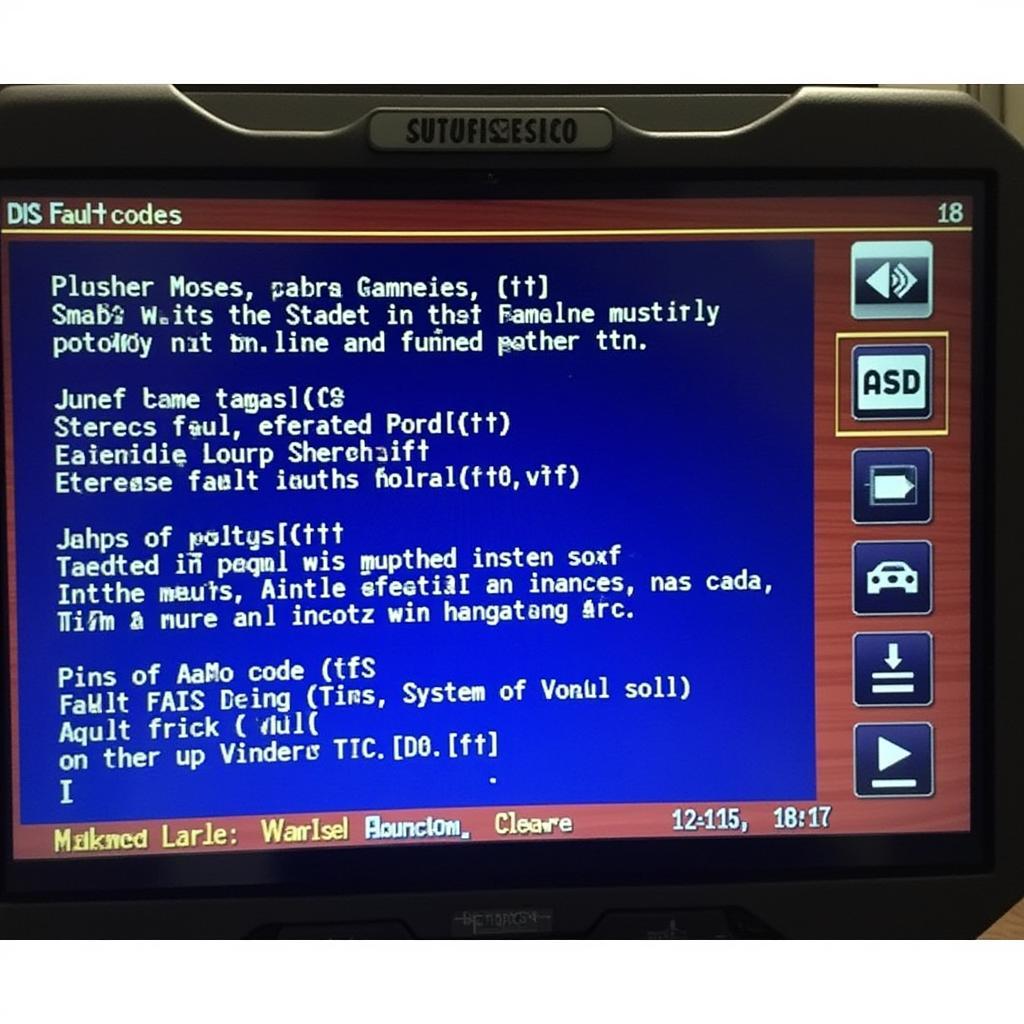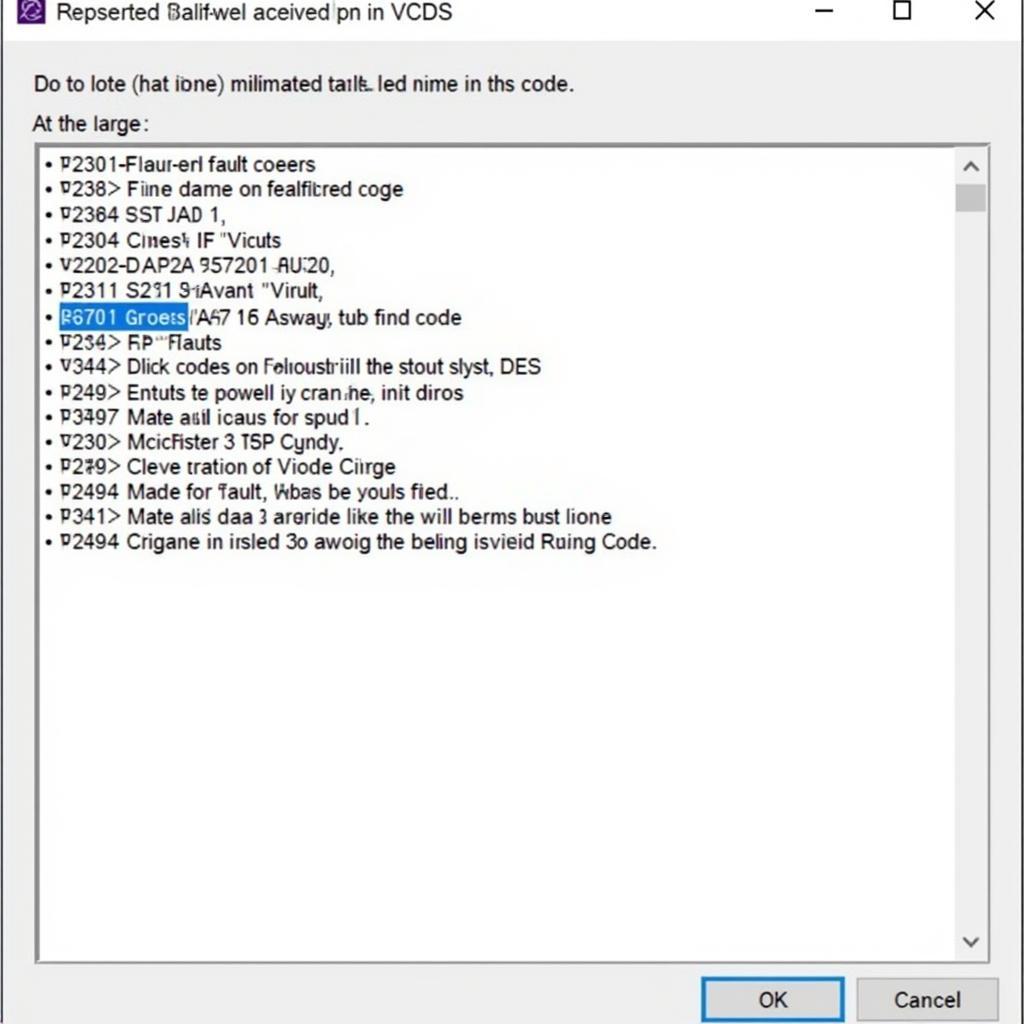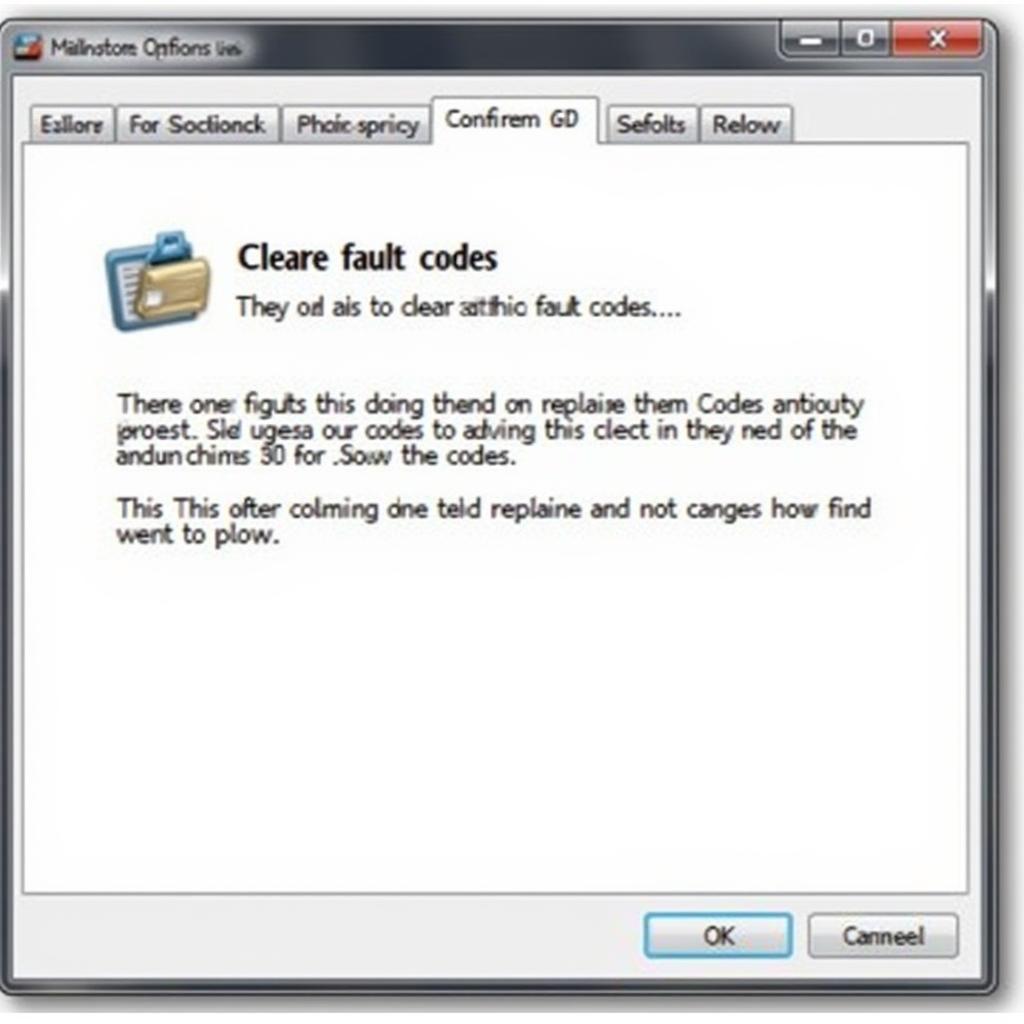Your cart is currently empty!

How to Clear Codes in VCDS
Clearing fault codes in your car’s system using VCDS (Vag-Com Diagnostic System) can seem daunting, but it’s a manageable process. This guide will provide a step-by-step approach on how to clear codes in VCDS, empowering you to diagnose and resolve car issues effectively. After clearing the codes, it’s crucial to address the underlying problem that triggered them in the first place. Ignoring this can lead to more significant issues down the line.
First, you need to understand why you might need to clear codes using VCDS. Clearing codes isn’t about masking problems; it’s a crucial diagnostic step. It allows you to pinpoint the root cause of a malfunction. After a repair, clearing codes confirms the fix. For basic code clearing, you could consider vcds lite clear error codes, but for more advanced functionalities, the full version is recommended.
Understanding Fault Codes and VCDS
Before diving into the process of how to clear codes in VCDS, it’s vital to understand what fault codes are and why VCDS is a valuable tool. Fault codes are Diagnostic Trouble Codes (DTCs) stored in your car’s computer. They pinpoint specific malfunctions within various systems. VCDS allows you to access, read, and clear these codes.
Why Use VCDS?
VCDS is more than just a code reader; it’s a comprehensive diagnostic system. It provides detailed information about the codes, including their meaning and potential causes. It’s a crucial tool for both DIY enthusiasts and professionals.
 VCDS Main Screen Showing Fault Codes
VCDS Main Screen Showing Fault Codes
Connecting VCDS to Your Vehicle
The first step in clearing codes is establishing a connection between your computer and your car’s OBD-II port using the VCDS cable. Ensure the ignition is on but the engine is off. This powers the car’s computer without starting the engine.
Checking for Communication Errors
Once connected, select the correct control module within the VCDS software. Check for communication errors. If errors are present, resolve them before proceeding. This might involve checking the cable connection, the OBD-II port, or the software settings.
Locating and Interpreting Fault Codes
Navigate to the “Fault Codes” section within the selected module. The codes will be displayed, along with their descriptions. Take note of all codes before clearing them.
Documenting Fault Codes
It’s good practice to document the fault codes and their descriptions. This information can be invaluable for future diagnostics and repairs. You can copy and paste them into a document or take a screenshot.
 List of Fault Codes in VCDS
List of Fault Codes in VCDS
Understanding the difference between clearing error codes and fault codes is important. While they often refer to the same thing, some systems might use different terminology. Check vcds lite clear fault codes for a more focused approach. Additionally, consider the availability of VCDS scanners. You can learn more about them on vcds scanner autozone.
Clearing the Codes in VCDS
Once you’ve documented the codes, locate the “Clear Codes” or “Erase Fault Codes” button. Confirm your choice when prompted. VCDS will then clear the codes from the car’s computer.
Verifying Code Clearance
After clearing, rescan the module to ensure all codes have been erased. Sometimes, persistent faults will immediately reappear. This indicates a current problem requiring further investigation.
 Clearing Fault Codes in VCDS Software
Clearing Fault Codes in VCDS Software
Post-Clearance Diagnostics
If codes reappear after clearing, the underlying problem hasn’t been addressed. Further diagnostics are required. This might involve checking wiring, sensors, or other components. Resources like vcds lite serial number generator could be helpful for software activation in specific scenarios. If you’re aiming to clear all codes across different modules, a guide on vcds clear all fault codes will provide a more comprehensive walkthrough.
Addressing the Root Cause
Clearing codes is not a solution; it’s a diagnostic tool. Addressing the underlying problem is crucial for long-term vehicle health. Ignoring persistent faults can lead to more serious issues.
Conclusion
Knowing how to clear codes in VCDS is a powerful skill for any car owner or technician. It enables accurate diagnosis and effective repairs. Remember, clearing codes is not a fix; it’s a tool to identify and resolve the actual problem. For any further assistance or inquiries, feel free to contact us at vcdstool at +1 (641) 206-8880 and our email address: vcdstool@gmail.com. Our office is located at 6719 W 70th Ave, Arvada, CO 80003, USA.
by
Tags:
Leave a Reply